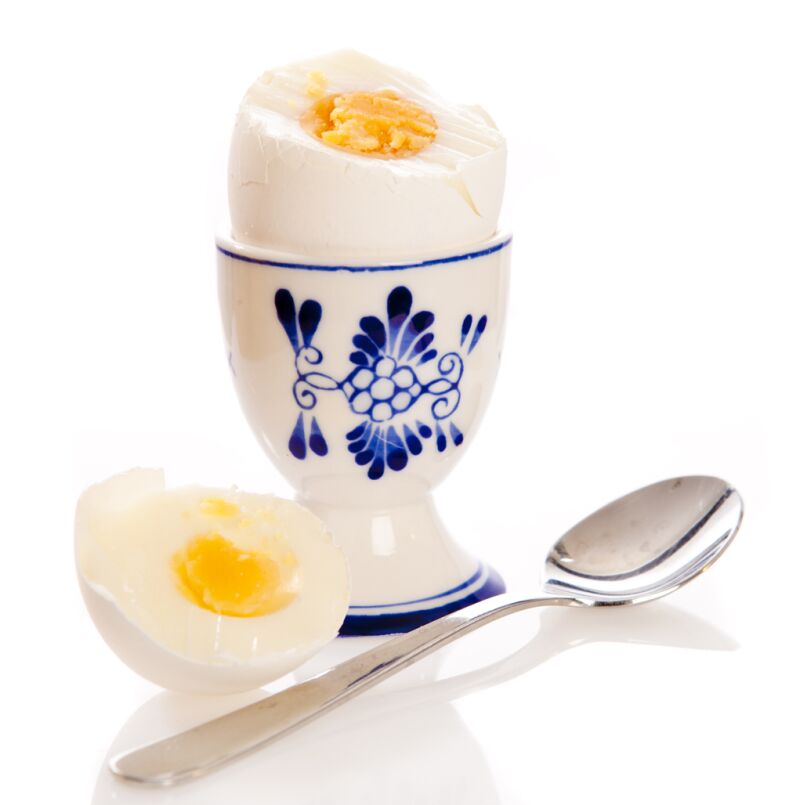Forget cooking eggs for seven, eight and nine minutes. The 1 + 10 technique, also called the American custom, makes the egg just perfect: the protein becomes suitably tender, the yolk is melt-soft in the mouth but not in the slightest.
In other words, the egg is fully ripe, but not too hard or dry.
There is no danger of overcooking with this gentle cooking method. The rubberiness and crumbling yolk of overripe eggs can be forgotten, not to mention the greenish ring that forms around the yolk. It is produced in overripe eggs when the hydrogen sulfide of the protein and the iron of the yolk react.
And if you like softer but not runny yolk, the right degree of softness is guaranteed even then.
On top of all that, eggs are easy to peel with this method because they don’t stick to the surface of the egg as often happens to the annoyance of the egg eater.
Cooking an egg with the 1 + 10 method is a gentle stew
This is how perfect egg cooking takes place – and it’s not even difficult:
- Put the eggs in a saucepan of cold water so that they just cover.
- Heat the pan on the stove without the lid until the water boils.
- Boil the eggs for one minute. Check the time with an egg clock or timer.
- Take the pan off the stove, put the lid on and simmer for 10 minutes.
- Pour off the water and leave the eggs in the pan for about 30 seconds, until their surface dries. Cover the eggs with cold water, wait a minute or two and peel the eggs.
Cooking an egg with the 1 + 10 technique is actually a gentle stew. With the clock, you don’t have to be as precise during the brewing phase as you are during a minute of cooking. If you like a slightly harder yolk, 12 minutes may be a more appropriate brewing time. It is almost impossible to get overripe eggs by stewing them, even if they are forgotten in the pot for a little longer.

Cooking an egg with the 1 + 10 technique is considered by many to be the perfect way.
Additional tips for hi-fiers
It is possible to take the cooking of an egg to an even more complete level with a few additional tips:
If you want to optimize the ease of peeling, you can break the eggshell after hatching, for example with a spoon, before placing the eggs in cold water.
And if you’re interested in hibernation, you can add a touch of salt and 1-2 teaspoons of white wine vinegar to the boiling water of the eggs. The salt accelerates the hardening of the protein surface and “glues” any cracks in the skin that form in hot water.
White wine vinegar helps to solidify any shores of protein escaping into the water if the crust happens to crack.












